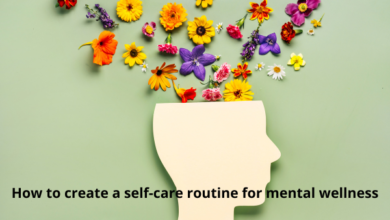Continuously Awake: Effects on Our Body

Continuously Sleep is a very important process for physical and mental health, which is also a requirement of nature. Without sleep, the human mind and body do not function.
Due to the stress of life’s vicissitudes and difficulties, some people stay away from sleep for up to 24 hours, but in extremely rare cases, a period of 48 hours has also been
According to an article published in Al-Argal, sleep is a natural process for the development of the body, which not only strengthens the body’s immunity but also gives the body strength and energy. It makes us weak, due to which the germs of different types of diseases start affecting the body, which emerge due to the lack of immunity.
Continuously Sleeping
How long can you stay awake?
So far, researchers have not been able to come to a definitive conclusion about how long it is possible to be awake continuously without falling asleep without causing negative health effects. So far, the longest record in this regard is 264 hours, i.e., 11 days.
One participant in this survey described his experience as saying that on the third day of continuous wakefulness, he experienced a sense of nausea as well as memory loss, which means that the human body is unable to tolerate prolonged sleep deprivation. Not capable.
According to the ‘Healthline website’, three to four days without sleep can cause a person to face a difficult mental situation, which makes him feel burdened and confused.
Sleep deprivation can lead to death in extreme cases, but this is very rare.
What are the effects of being awake for 24 hours continuously on the body?
Being awake for 24 hours is not a big deal, but if it is more than that, the following situation may be faced:
quick to anger
. tiredness
Difficulty making decisions
Lack of memory
Vision and hearing loss
Trembling or trembling of the body

Without sleep for three to four days, a person may face a difficult situation mentally.
24 hours of continuous wakefulness can also cause changes in blood, such as when an alcoholic drinks a blood alcohol test of 0.10%.
Research has also shown that constant waking slows down the rate of molecular clearance in the human brain, allowing certain chemicals to accumulate on the surface of the brain that can later lead to Alzheimer’s disease.
Body condition after 36 hours of continuous wakefulness
Staying awake for 36 hours continuously without sleep starts to have severe effects on the body, due to which the levels of some hormones in the body start to be affected, such as cortisol, insulin, growth hormones, etc. The problems caused by a deficiency of these hormones are described below.
. hunger
Body temperature
Deterioration of mood
. Metabolism
Apart from the above effects, more problems are also mentioned below.
Extreme fatigue
Hormonal imbalance
Low morale
Making risky decisions
loss of focus (difficulty choosing words when speaking)
disturbance of body heat balance and increase in blood pressure

According to experts, constant awareness begins to affect thinking.
48 hours of continuous wakefulness?
It is very difficult for a person to stay awake even after 48 hours of continuous wakefulness, during which a person may involuntarily fall into sleep bouts that may last for 30 seconds. This light nap can be involuntary, after which a person can go through mental confusion and difficult situations.
The worst news here may be that after being awake for 48 hours continuously, the immune system starts to weaken.
In this regard, a report published in a journal that researches sleep states that due to the decrease in the body’s immunity due to continuous wakefulness, the cells that fight cancer cells begin to weaken, which means that cancer sales will become powerful.
What happens after 72 hours of continuous wakefulness?
In the above case, sleep is your top priority. After reaching this stage, you can go to sleep without your will.
Three days of constant vigilance begin to affect your thinking, making you neglect your responsibilities. In this case, even a small task feels like a mountain, and it becomes very difficult to do it.
When does insomnia become chronic?
Lack of sleep becomes chronic when a person does not get enough sleep on a regular basis, or if a person does not get regular, healthy sleep, an attack of insomnia can occur. That is why it is said that nighttime sleep is restful sleep. It also affects health.
Not getting enough sleep for a week can lead to the following health problems:
Stress, worry, and confusion
Deterioration of mood
Lack of focus
Affection for work
risk of getting diseases
Prolonged lack of sleep affects your immune system, which can increase the risk of certain diseases that are described below:
increased blood pressure
Heart disease
Brain stroke
Type 2 diabetes obesity
How much sleep is appropriate per day? Each person’s daily sleep duration is different, which is determined by age. In general, the sleep duration of newborn babies is much longer than that of adults. Some studies have also said that women sleep longer than men.
According to the chart provided by the Center for Disease Prevention and Control regarding sleep duration, sleep time is determined by age.
Newborn babies, 14 to 17 hours.
Infants 12 to 16 hours.
Toddlers who have learned to walk 11 to 14 hours.




